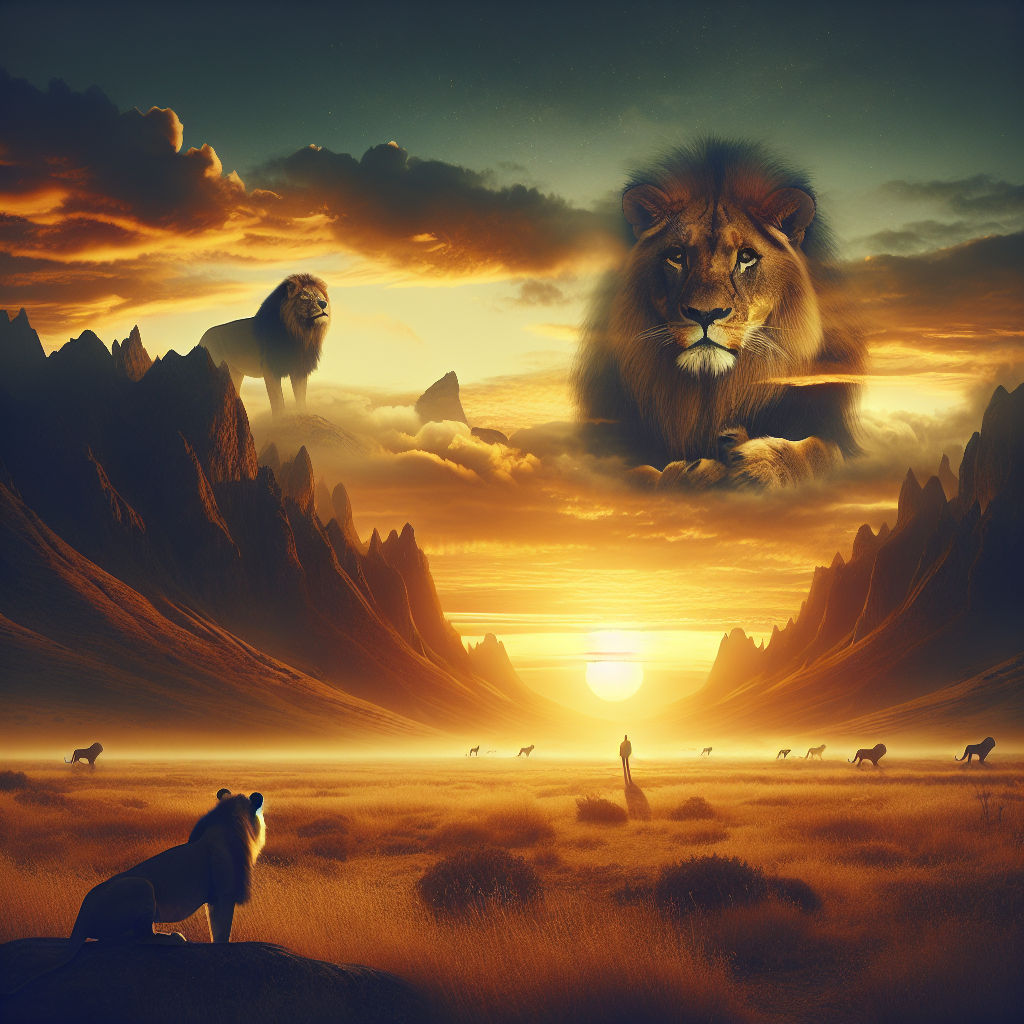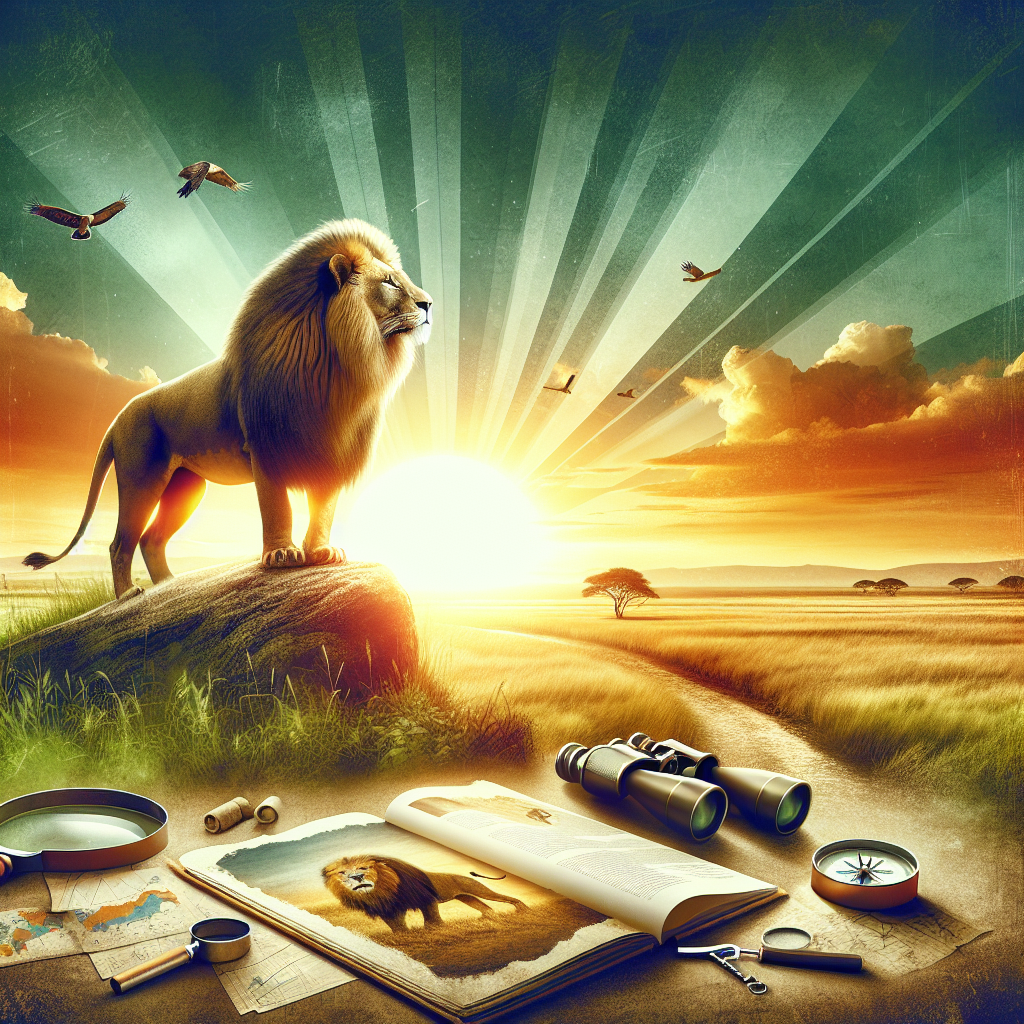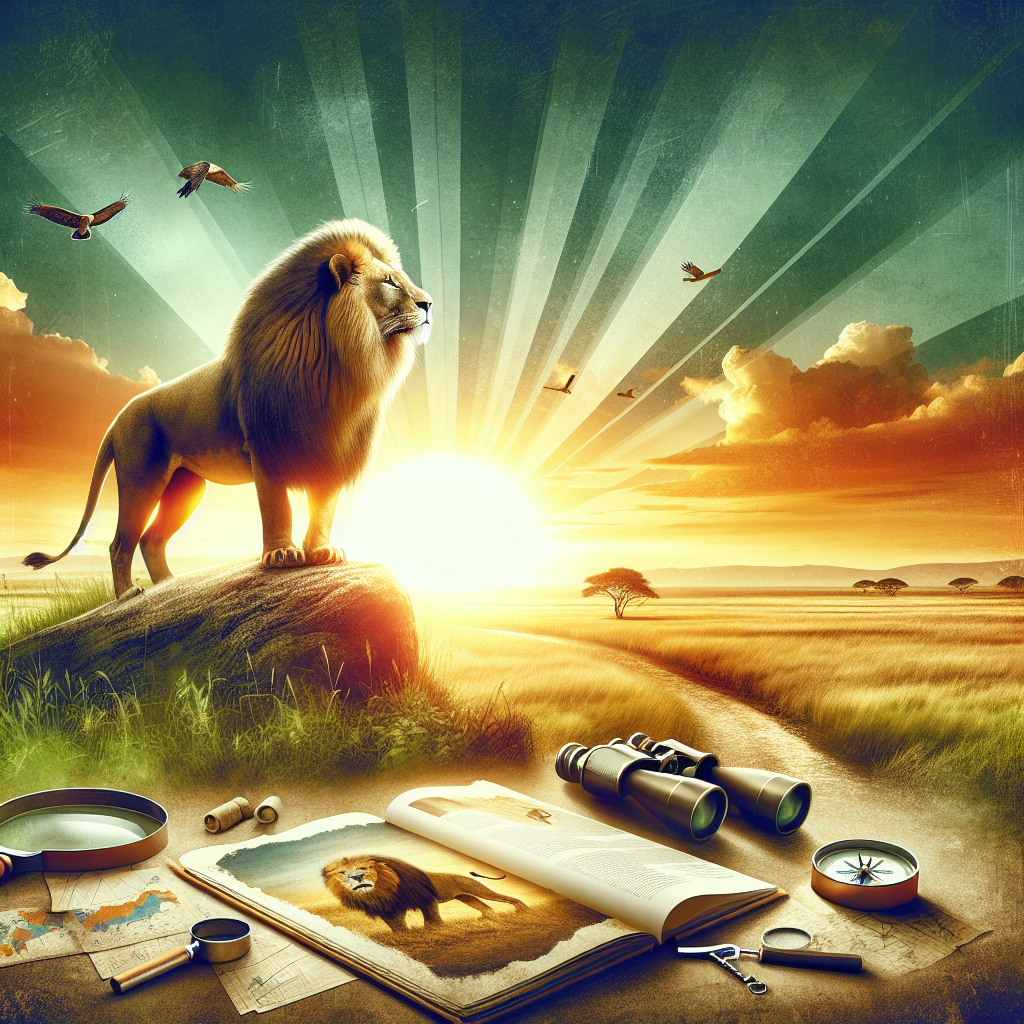If you’ve ever wondered about the organizations that are at the forefront of lion conservation, look no further. In this article, we’ll be taking a closer look at the various non-profit organizations that are leading the effort to protect and preserve lions in their natural habitats. From international organizations with a global reach to local initiatives making a significant impact on the ground, discover who’s playing a crucial role in securing the future of these majestic creatures.
Lion Conservation Organizations
When it comes to the conservation of lions, there are numerous organizations around the world that are dedicated to protecting these magnificent creatures and ensuring their survival for future generations. In this article, we will explore some of the leading lion conservation organizations and learn more about their missions, activities, key achievements, and current projects.
International Union for Conservation of Nature (IUCN)
The International Union for Conservation of Nature (IUCN) is one of the most prominent and respected organizations involved in lion conservation. Their mission is to ensure the conservation of nature and the sustainable use of natural resources worldwide.
The IUCN is involved in a range of activities aimed at protecting lions and their habitats. They conduct research to gather valuable scientific data on lion populations, behavior, and threats. They also develop and implement conservation strategies and policies to safeguard these majestic animals.
Over the years, the IUCN has achieved significant milestones in lion conservation. They have effectively raised awareness about the declining lion populations and the need for urgent action. Through their efforts, the IUCN has managed to influence governments and policymakers to strengthen and enforce laws and regulations for the protection of lions.
Currently, the IUCN is involved in several ongoing projects focused on lion conservation. These projects include habitat restoration, anti-poaching initiatives, community engagement programs, and wildlife monitoring and research.
Panthera
Panthera is another leading organization dedicated to the conservation of lions and other wild cat species. Their mission is to ensure the future of wild cats through scientific research, conservation actions, and public education.
Panthera’s activities include conducting research to understand the behavior and ecology of lions, implementing anti-poaching measures to combat illegal hunting, and collaborating with local communities to promote coexistence between humans and lions.
Through their dedicated efforts, Panthera has achieved significant milestones in lion conservation. They have led groundbreaking research initiatives that have provided valuable insights into lion populations, breeding patterns, and habitat requirements. Panthera’s conservation actions have also contributed to reversing the decline of lion populations in some regions.
Currently, Panthera is actively engaged in several projects aimed at protecting lions and their habitats. These projects focus on establishing protected areas, implementing community-based conservation programs, and developing conservation strategies in collaboration with governments and local communities.

African Parks
African Parks is a non-profit organization that works in partnership with governments and local communities to manage and protect national parks and wilderness areas in Africa. Their mission is to ensure the long-term survival of wildlife and ecosystems, including lions.
Under their management, African Parks oversees the protection and conservation of several national parks and reserves that are crucial habitats for lions. They employ anti-poaching units, implement community engagement initiatives, and work to restore and expand lion habitats.
African Parks has achieved notable success in lion conservation, particularly in areas where lion populations were previously on the decline. Through their management and conservation efforts, they have seen the recovery of lion populations and increased protection of their habitats.
The organization’s current projects include strengthening anti-poaching efforts, expanding protected areas for lions, and implementing community development programs to alleviate human-wildlife conflicts.
Lion Guardians
Lion Guardians is a community-based organization that focuses on the conservation of lions in East Africa. Their mission is to promote peaceful coexistence between local communities and lions by finding sustainable solutions to human-wildlife conflicts.
Lion Guardians implement various activities to achieve their mission, including training and employing local Maasai warriors as wildlife ambassadors. These guardians work closely with local communities to monitor lion movements, mitigate conflicts, and facilitate the conservation of lions and their habitats.
The organization has made significant strides in lion conservation by reducing lion killings and improving attitudes towards lions among local communities. Through their innovative approach, Lion Guardians have helped foster a sense of pride and ownership among communities, leading to increased tolerance and support for lion conservation efforts.
Currently, Lion Guardians continue to expand their operations, establish new programs, and collaborate with other organizations and government agencies to further enhance the conservation of lions.

WildAid
WildAid is an international organization focused on stopping illegal wildlife trade and promoting conservation efforts. While not solely dedicated to lions, their work indirectly benefits the conservation of these iconic animals.
WildAid carries out extensive public awareness campaigns to reduce the demand for products derived from lions, such as trophies and traditional medicines. By addressing the demand for these products, they hope to reduce the threats to lion populations and their habitats.
The organization has achieved significant milestones in raising awareness about the detrimental impacts of illegal wildlife trade and promoting responsible choices among consumers. Their campaigns have reached millions of people globally, contributing to changing attitudes and behaviors towards the consumption of wildlife products.
WildAid’s current projects include expanding their awareness campaigns, collaborating with governments and law enforcement agencies to strengthen anti-poaching efforts, and supporting community-based initiatives that promote sustainable livelihoods as alternatives to wildlife trafficking.
Wildlife Conservation Network (WCN)
The Wildlife Conservation Network (WCN) is a non-profit organization committed to protecting endangered species and their habitats. They work closely with dedicated conservationists and local communities to implement effective conservation strategies.
WCN supports various initiatives aimed at lion conservation through their programs and funding opportunities. They provide financial assistance and technical expertise to conservation projects on the ground, supporting anti-poaching efforts, community-based conservation initiatives, and scientific research.
Through their partnerships with local organizations and communities, WCN has achieved significant success in lion conservation. They have played a crucial role in facilitating collaborations, sharing best practices, and empowering local communities to take a proactive role in protecting lions and their habitats.
WCN’s current projects range from protecting lion habitats and promoting community-based conservation to developing innovative solutions for human-lion conflicts and developing sustainable financing mechanisms for lion conservation.
World Wildlife Fund (WWF)
The World Wildlife Fund (WWF) is a well-known international conservation organization working across the globe to protect endangered species and their habitats. While their focus extends beyond lions, they play a vital role in lion conservation through their broader conservation efforts.
WWF’s activities related to lion conservation include supporting research projects, lobbying governments for stronger regulations, and implementing community-based initiatives that promote sustainable livelihoods and reduce human-wildlife conflicts.
Over the years, WWF has achieved significant accomplishments in lion conservation. They have successfully advocated for policies that protect lions and their habitats, conducted research that informs conservation strategies, and supported local communities in lion range areas.
WWF’s current projects in lion conservation focus on securing protected areas, implementing anti-poaching measures, supporting community-led conservation efforts, and strengthening regional collaboration for the conservation of lions and other wildlife.
Lion Recovery Fund
The Lion Recovery Fund is a coalition of organizations dedicated to protecting and recovering lion populations across Africa. Their mission is to restore lion populations and their habitats by funding innovative projects, generating high-level support, and promoting collaboration among stakeholders.
The Lion Recovery Fund provides financial support to a range of initiatives aimed at lion conservation. These projects include anti-poaching efforts, community-based conservation programs, research and monitoring, and habitat restoration. By supporting these initiatives, the fund aims to reverse the decline of lion populations and ensure their long-term survival.
Since its establishment, the Lion Recovery Fund has made significant progress in lion conservation. Through their funding and collaboration, they have contributed to the effective protection of lions, the reduction of poaching, and the implementation of conservation strategies across various lion range countries.
The fund’s current projects are focused on expanding their impact, supporting smaller organizations and grassroots efforts, and advocating for policy changes that strengthen lion conservation measures.
Cheetah Conservation Fund
While primarily focused on cheetah conservation, the Cheetah Conservation Fund (CCF) also plays an important role in lion conservation by addressing the common threats faced by these big cats and their shared ecosystems.
CCF’s activities include scientific research, public outreach, and community-based initiatives aimed at reducing threats to cheetahs and other large carnivores, including lions. By promoting sustainable agriculture practices, implementing predator-friendly livestock management techniques, and enhancing habitat conservation, CCF indirectly contributes to lion conservation efforts.
Over the years, CCF has achieved notable success in reducing human-wildlife conflicts and promoting coexistence between local communities and large carnivores. Through their innovative approaches and community engagement, they have seen improvements in attitudes towards lions and increased support for their conservation.
CCF’s current projects in lion conservation include expanding their community-based programs, developing best practices for managing lion populations outside protected areas, and supporting research efforts to better understand lion behavior and ecology.
Born Free Foundation
The Born Free Foundation is an international wildlife charity working to protect threatened species and promote compassionate conservation. While their scope extends beyond lions, they actively support initiatives and campaigns dedicated to the protection of these majestic animals.
Born Free Foundation’s activities include funding conservation projects, offering educational resources and materials, and advocating for stronger protections for lions and their habitats. By promoting responsible tourism, supporting anti-poaching efforts, and working with local communities, they strive to secure a future for lions in the wild.
Through their support and collaboration, Born Free Foundation has contributed to various lion conservation efforts globally. They have facilitated the implementation of anti-poaching measures, supported community-based conservation programs, and raised awareness about the importance of protecting lions and their ecosystems.
Currently, Born Free Foundation is involved in several projects aimed at lion conservation, including wildlife rescue and rehabilitation, habitat preservation, and promoting sustainable livelihoods for local communities.
In conclusion, lion conservation is a complex and challenging endeavor, requiring the collective efforts of various organizations and stakeholders. The International Union for Conservation of Nature (IUCN), Panthera, African Parks, Lion Guardians, WildAid, Wildlife Conservation Network (WCN), World Wildlife Fund (WWF), Lion Recovery Fund, Cheetah Conservation Fund, and Born Free Foundation are at the forefront of these efforts.
Each organization brings its unique approaches, expertise, and resources to address the multiple threats facing lions and their habitats. Through research, community engagement, anti-poaching initiatives, habitat restoration, and awareness campaigns, these organizations are making a significant impact in safeguarding the future of lions.
While there is still much work to be done, the collective efforts of these organizations, alongside governments, local communities, and dedicated individuals, offer hope for the continued survival and conservation of these iconic and irreplaceable species.

